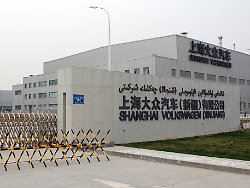Friday, January 8th, 2021
Group renews "Social Charter"
VW sets rules for human rights
The fact that Volkswagen operates a plant in the Chinese region of Xinjiang, where the Uyghur minority is exploited, has met with fierce criticism from human rights activists. With a policy paper, the group wants to ensure compliance with fundamental rights for all business contacts.
Binding internal rules are intended to ensure compliance with human rights in the Volkswagen Group's global plant network and in all business contacts with suppliers. The world's largest car manufacturer introduced a new version of its "Social Charter", which among other things explicitly pledges to guarantee freedom of belief and freedom of opinion. Works council chief Bernd Osterloh said on this and on the debate about a German supply chain law: "Voluntary obligations quickly degenerate into lip service. That is why legally binding regulations are needed to ensure compliance with human rights due diligence."
VW's management and works council discussed the issue at the end of 2020, and there was a group event on "Business and Human Rights" with the responsible expert Barbara Lamprecht. In addition to the question of how to ensure compliance with fundamental rights in the procurement of raw materials and supplies, VW is concerned with the situation in some foreign locations.
Human rights activists and politicians demanded clarity about the company's position on allegations against China's leadership of detaining Uyghurs in re-education camps in the western region of Xinjiang. VW operates a plant there in the capital Urumqi. In the autumn, the group declared that it was doing everything to "actively represent our values in China and implement them in all areas that we can directly influence". In 2019 there were almost 90 on-site inspections in Chinese factories by suppliers. There is no evidence of forced labor in the supply chains.
Principles at work
VW pursues a multi-stage plan in relation to its suppliers – in the event of human rights violations, contracts can be terminated. Our own work "with all of our factories, sales companies and suppliers" is also based on principles that ensure respect for minorities, employee representation and social standards. Legal director Hiltrud Werner told the "Spiegel" that customers, investors and the workforce expected "that we as a company operate sustainably and behave ethically correct".
For Osterloh, in addition to their ethical significance, such factors now make up part of the business opportunities: "Taking responsibility for challenges outside of one's own company must be in the company's own interests." In Germany, a supply chain law was needed, which associations initially rejected during the Corona crisis. Osterloh: "It is intended to ensure that German companies do not purchase any preliminary products from abroad that are obtained in disregard of elementary human rights."
.
